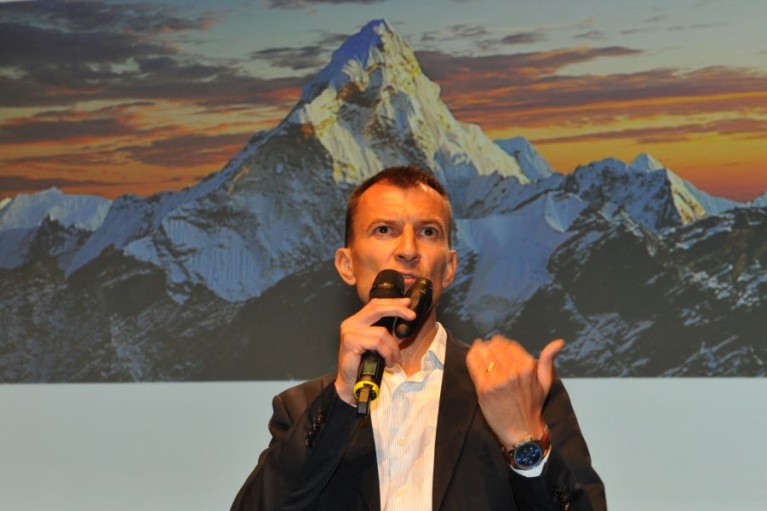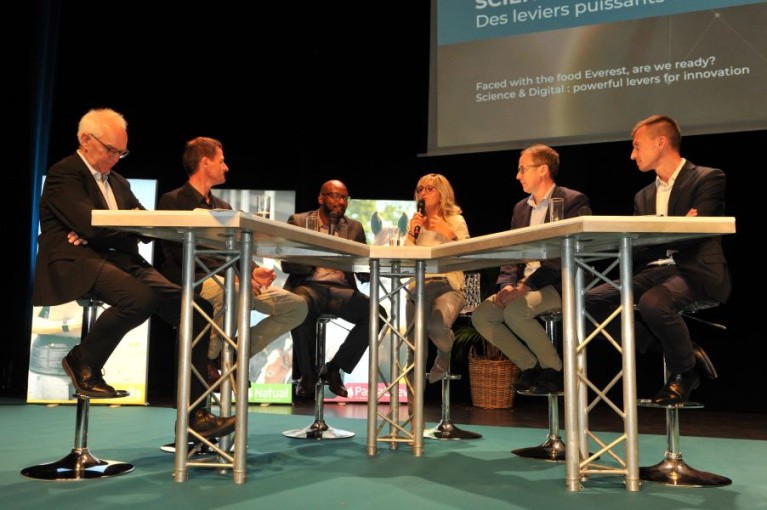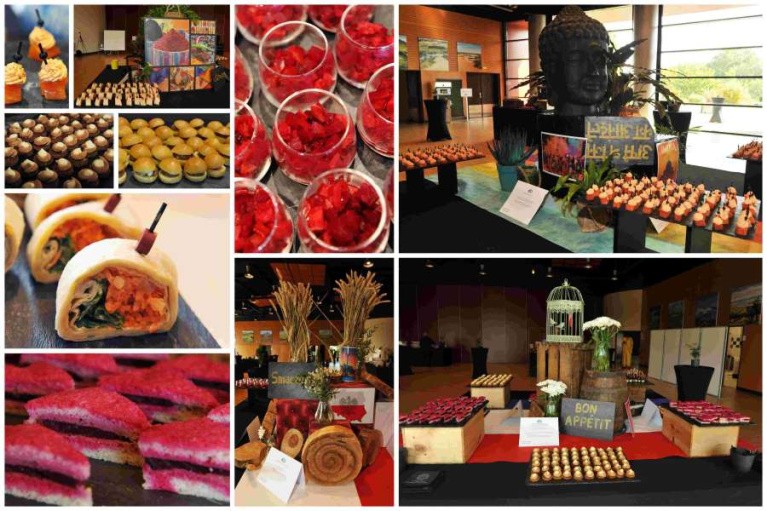On 20 September, Techna brought together its customers, partners and teams in Orvault to mark its 60th anniversary. Beyond the celebrations, the event provided an opportunity to take stock of a history rich in innovation and to plan for the future to cope with the food and climate challenges of the 21st century.
October 9, 2024
On 20 September, Techna played to a full house at the Odyssée d'Orvault to celebrate its 60th anniversary. The event brought together 350 customers, partners and employees from all over the world, reflecting the international development of our company, which was founded in 1964 near Nantes.
Jean-Marc Pinsault, CEO and Chairman of the Group, opened the ceremony with a heartfelt tribute to his predecessors, inviting Jean-Paul Jacquet, Philippe Carle, Christian Bluard and Jean-Luc Mousset to take to the stage.

After this retrospective, let's return to the present. Techna is an independent company that places technical expertise at the heart of its concerns, putting it at the service of its customers' performance," emphasises Jean-Marc Pinsault. Our strong roots in France and our international reach are also part of our DNA. Techna currently comprises 14 companies and 320 employees, operating in 50 countries. Its international expansion, a source of collective innovation, means that it has to meet major demographic, food and environmental challenges.
Facing the food Everest: are we ready?
The morning continued with a conference followed by a round table discussion moderated by Nathalie Maisonneuve. Sébastien Abis, director of Club Demeter and associate researcher at the Institut de relations internationales et stratégiques (Iris), was invited to set the scene: "Techna's centenary is tomorrow. We need to prepare for it". Between now and 2050 or 2060, the world's population will reach 10 billion, before a decline anticipated by demographers.

"All these new people on Earth need food, whoever they are, wherever they are, in 2024 as in 2064". Sébastien Abis likens this colossal challenge to a food Everest, urging us to get as many people on board as possible, as never before in history, to achieve food security.
But there can be no food security without health and sustainability, which he sees as forming three essential verticals. He also reminded us that the planet has limited resources (arable land, thirst for water, etc.) and that we need to reduce our CO2 emissions. "We need to give ourselves the means to descend Everest on oxygen", said Sébastien Abis.
Science and digital, powerful drivers of innovation
But in 2024, not everyone is on the same side of the mountain, and the climb will not be a collective one. Geopolitical tensions are getting in the way. "How can we all move forward in the common interest of humanity?" asked Sébastien Abis. He advocated a development model based on five pillars: competitiveness, risk management, sustainability, boldness and diversification, with an emphasis on the human factor.
Science and digital technology must be able to contribute to meeting this dual challenge of feeding and protecting the planet. During a round table discussion, Christian Huyghe, Scientific Director for Agricuture at INRAE, highlighted the 9 planetary limits, 6 of which have now been exceeded, and the need to equip ourselves with the right metrics. In his view, the nitrogen cycle is the most critical. He sees these constraints as guidelines for creating a collective dynamic.
Jérôme Le Roy, Chairman of La Ferme Digitale and founder of Weenat, stressed the importance of thinking in terms of innovation on an international scale, and of encouraging systemic collaboration between engineers, salespeople and researchers.
This view was shared by Arafat Mahamat, Managing Director of Techna Central and West Africa, who emphasised the major geostrategic challenges facing the African continent, particularly in view of its strong demographic growth and young population, adding that developments must be "geared to local needs and specificities".
Gwénaël Forgeard, Feedia's Market Director, outlined a number of ways of improving the feed efficiency and sustainability of livestock production. According to him, new technologies will make it possible to "adapt nutrition in a more precise and individualised way". Collecting and analysing data in real time is another lever for innovation in animal nutrition.

Techna shares its challenges and areas of work
Following this round table, which offered an inspiring and strategic perspective for the decades to come, Jean-Marc Pinsault outlined Techna's ambitions in this area. "We believe in the power of science, technology and the development of knowledge and skills," he said. Techna has set itself four strategic priorities for the future: improving the efficiency of livestock production, decarbonising and reducing the environmental impact of livestock production, contributing to animal health and welfare and guaranteeing a high level of health safety.
In terms of investment and innovation, Jean-Marc Pinsault unveiled our short- and medium-term strategy.

The first is the real-time collection and analysis of performance data and the animal's environment, supported by Kumulus and the Wefeed tool.
In line with its founding values, the second is human capital, with the creation of a training school in animal health and nutrition.
The third is internationalisation. "We need to turn our subsidiaries into local regional platforms for all our know-how: services, products, expertise, R&D, laboratories, training, etc.", emphasised Jean-Marc Pinsault.
To round off the morning, what could be better than a convivial lunch,, where the guests enjoyed a culinary world tour.
